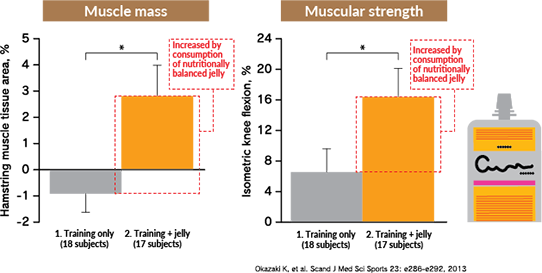Why do athletes have to eat a lot?
The amount of energy required per day varies depending on the amount of exercise you get and your physique.
People who do sports need more energy than those who don't, and it also varies depending on the specific sport and their weight.
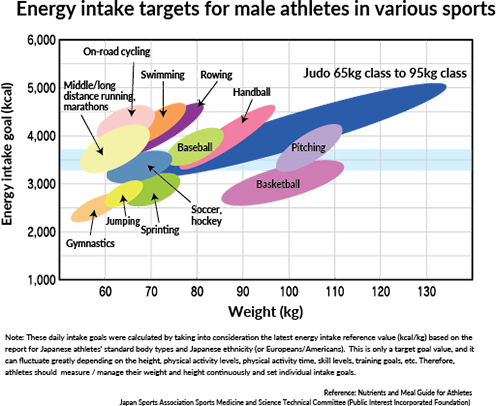
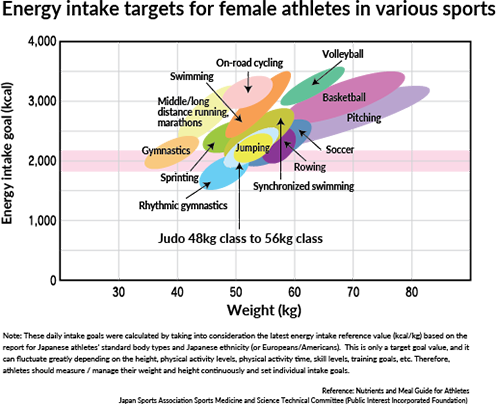

Therefore, with only three meals, athletes tend to run out of energy. To ensure that you have enough energy, there are two points to remember. The first, basic rule is to eat 3 full meals. The second is to take planned supplementary meals.
I Most of the day is spent sitting and centered around static activities
II Work is spent mainly sitting, but in the workplace there is movement or operations / hospitality work carried out while standing, or the day includes commuting, shopping, housework, light exercise sports, etc.
III Work includes a lot of movement or standing, or if you are in the habit of spending leisure time on sports and similar activities
The rising trend of skipping breakfast and impact upon performace - the importance of eating 3 proper meals
Due to the increase in nocturnal lifestyles, an increasing number of people are no longer eating breakfast. This includes those studying for exams, working overtime, or working night shifts, or people who are too busy to have time to eat in the morning. According to a survey by the Ministry of Health, Labour and Welfare, the number of both men and women who do not eat in the morning has been increasing year-on-year. In particular, there is a tendency among young people in their 20s to skip meals. There are indications that skipping breakfast leads to increased tiredness, weight gain, and an inability to maintain concentration.
Also, this habit of skipping breakfast is seen among some children in the growth phases between ages 1 to 6, and elementary and junior high school students aged 7 to 14; the rate increases among high school students aged 15 to 19.
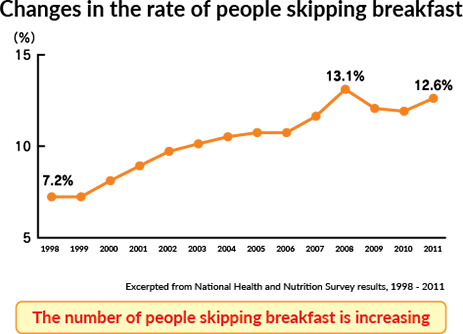
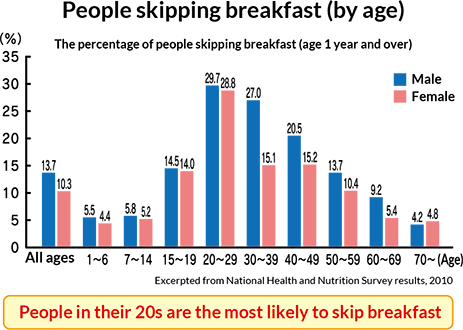
When breakfast is skipped, it becomes difficult for your body to get the energy it needs, and since water is also acquired from meals, it leads to insufficient hydration. Furthermore, the blood sugar level does not increase, making it difficult for the body temperature to rise.
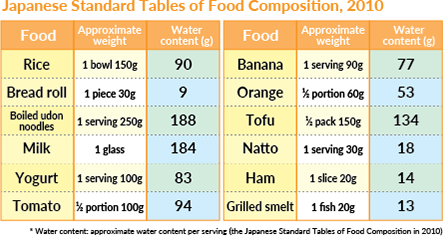
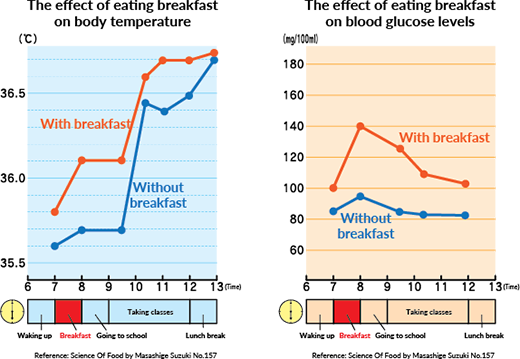
In particular, the teenage years are when the recommended energy requirement is at its highest.
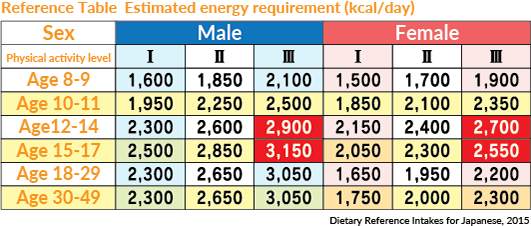
It has been shown that even if you eat breakfast, if it has poor nutritional balance, it causes tiredness and affects concentration levels.
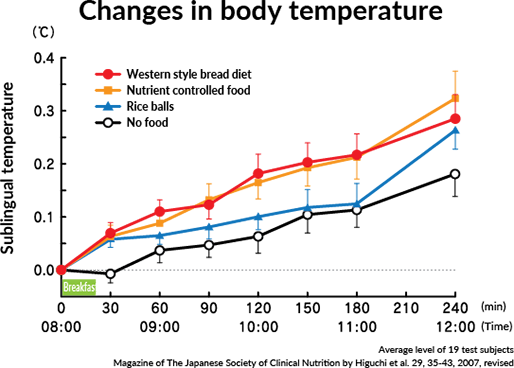
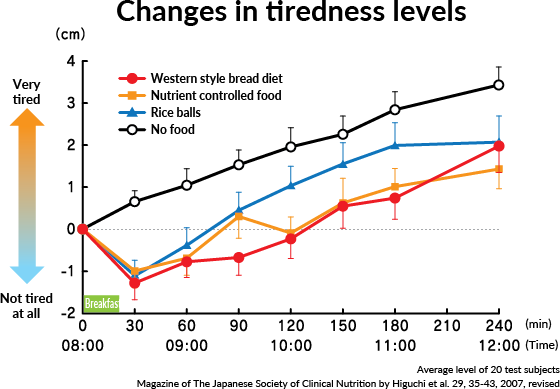
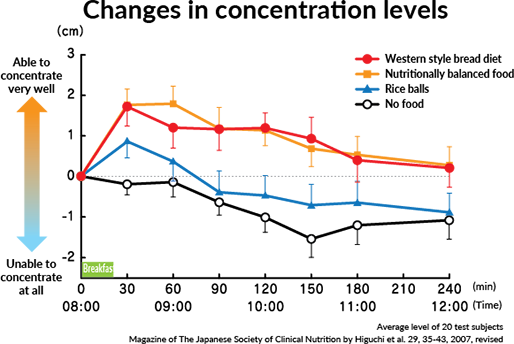
The importance of supplementary meals for athletes and active people

Supplementary meals are meals that you take to compensate for nutrients and ingredients that may be missing from your main 3 meals.
People who do a lot of exercise should be sure to get adequate energy and nutrients from their three main meals and supplemental snacks.
There are now many nutritionally balanced foods available to make this possible.
Taking nutritionally balanced foods after exercise increases muscle mass and muscular strength
Groups of middle-aged and elderly women carried out interval walking training at least 4 times a week for 5 months.
An increase in muscle mass and muscle strength was seen in the group who took nutritionally balanced food (jelly type) after the exercise, when compared with the group who did not eat anything after the exercise.
This indicated that the ingestion of a nutritionally balanced food at an appropriate time may be useful for maintaining physical fitness.
Groups of middle-aged and elderly women (41-78 years of age) carried out interval walking training at least 4 times a week for 5 months.
Compared with the exercise-only group (18 people), the group who ingested a nutritional jelly drink containing 5 major nutrients after the exercise (17 people) showed an increase in both muscle mass and muscular strength, indicating its usefulness in maintaining and improving the physical strength of middle-aged and elderly people.
